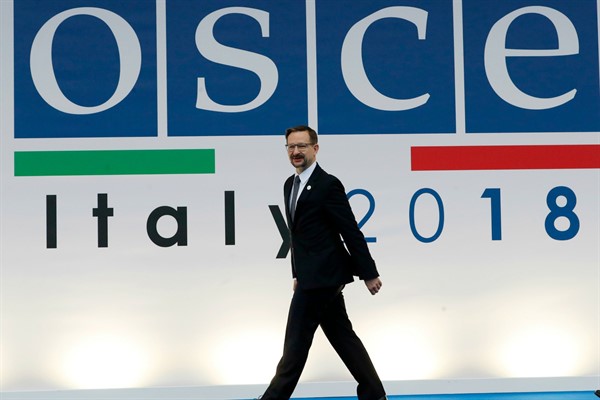VIENNA—Just before breaking for their summer recess, in early June, ambassadors to the Organization for Security and Cooperation in Europe had one major item on their agenda. The terms of the organization’s four top leaders were set to expire in mid-July, so the OSCE planned to reappoint each of them for another three-year stint. The extensions were widely seen as mere formalities—nothing out of the ordinary.
But then, on June 11, a letter of protest from Azerbaijan changed everything, turning an otherwise routine decision into a political power struggle that culminated in the toppling of the OSCE’s entire senior leadership team one month later. The head of the OSCE, Secretary General Thomas Greminger, had to vacate his office at its headquarters here in Vienna on July 18, along with the director of the Office for Democratic Institutions and Human Rights, Ingibjorg Solrun Gisladottir; the representative on freedom of the media, Harlem Desir; and the high commissioner on national minorities, Lamberto Zannier.
The impacts of the leadership vacuum will be felt in hotspots in Europe and Eurasia, from the conflict in eastern Ukraine to the long-disputed territory of Nagorno-Karabakh. Since its creation in 1975, the OSCE has played an important role in a wide range of conflict prevention, mediation and democracy promotion efforts, while also observing elections in its member states, including the United States. It is the only security-focused organization that brings together Russia, the U.S. and other major Western powers on an equal footing.

